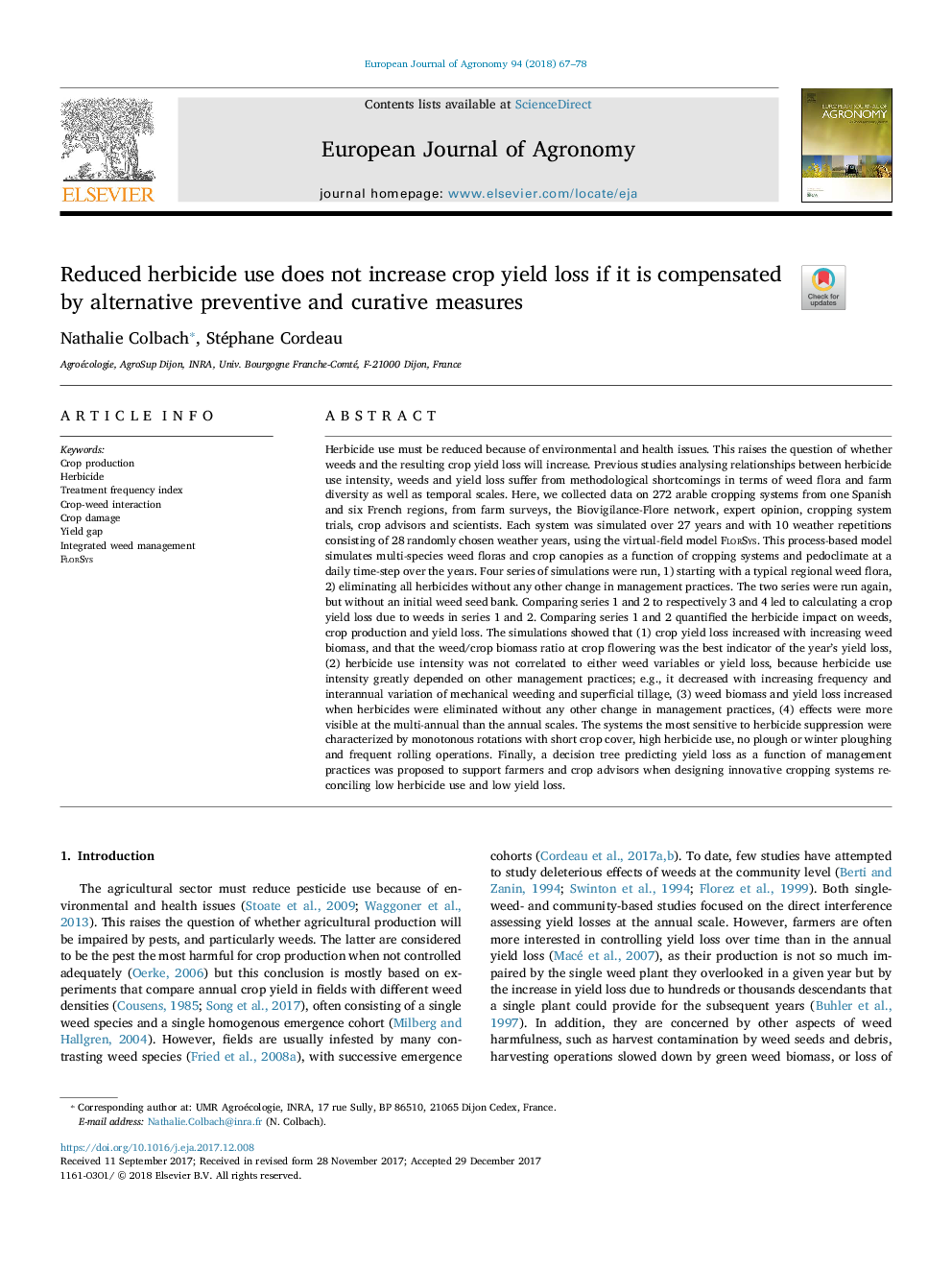ترجمه فارسی عنوان مقاله
کاهش مصرف علف کش موجب کاهش عملکرد محصول نمی شود، در صورتی که با اقدامات پیشگیرانه و جسمانی دیگری جبران شود
عنوان انگلیسی
Reduced herbicide use does not increase crop yield loss if it is compensated by alternative preventive and curative measures
| کد مقاله | سال انتشار | تعداد صفحات مقاله انگلیسی |
|---|---|---|
| 147572 | 2018 | 12 صفحه PDF |
منبع

Publisher : Elsevier - Science Direct (الزویر - ساینس دایرکت)
Journal : European Journal of Agronomy, Volume 94, March 2018, Pages 67-78

